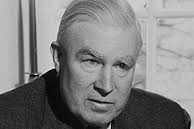Action, Mind and Matter in G.H. von Wright’s Later Writings
DOI:
https://doi.org/10.13135/2038-6788/9868Keywords:
Action, Evaluation, G.H. von Wright, Is/Ought Dichotomy, Mind/Matter Relationship, Paradox, Tragedy of Freedom, Citizens of Two WorldsAbstract
In the final years of his tireless exploration of the problems arising from “man’s place in nature”, von Wright turned his attention to the philosophy of mind as it relates to rational agency and to its role in the construction of the world of facts. This paper shall highlight (i) how the concept of human action, based on time-bound categories, allows us to reconcile determinism and free action, according to the Kantian concept of man as a “citizen of two worlds”, of the intelligible world in which he is a free agent, and of the phenomenal world in which he is a body subject to causality; (ii) how the intrinsic duplicity of the concept of human action enables us to resolve the is/ought dichotomy and – in accordance with the statements analysed by Wittgenstein in On Certainty at times as descriptions of facts and at others as rules of description – to conceive the deontic sentences both as descriptions of facts, i.e. as expression of existence of rules, and as prescriptions for human conduct; (iii) how the congruence of the two aspects, mental and physical, of human action is conceptual by nature and how therefore mental and physical, or mind and matter, do not contradict one another but are logically compatible.


